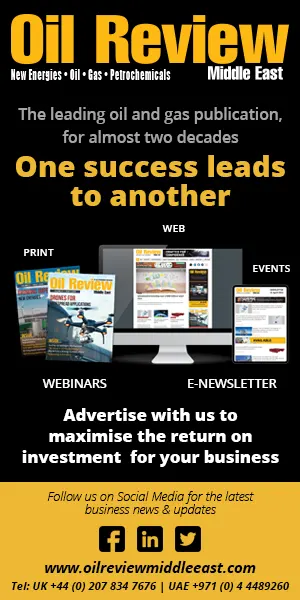
Mohamed Amer, regional director of operations, ICC MENA. (Image source: ICC)
As the GCC construction market continues to expand, driven by ambitious sustainability goals and innovative technologies, the International Code Council (ICC), a leading global source provider of building safety solutions, highlights several key trends that are shaping the future of building safety and sustainable construction
The GCC construction market is projected to grow from US$177.77bn in 2025 to US$226.88bn by 2030, reflecting a CAGR of over 5% during the forecast period, according to Mordor Intelligence. In 2025, the region is poised to embrace transformative shifts, including the rise of net-zero buildings, sustainable building materials, and the integration of advanced technologies like 3D printing and offsite construction. These emerging trends as critical to ensuring the region’s construction sector remains at the forefront of global sustainability and safety standards, according to the ICC, which emphasises the importance of a holistic, government-driven approach to leveraging opportunities for energy efficiency and sustainability.
Sustainability and green construction
As change of climate becomes an increasingly critical global issue, the GCC region is shifting toward energy-efficient, net-zero buildings. With ambitious emissions reduction targets set by governments, including Saudi Vision 2030 and the UAE’s Net Zero 2050 initiative, the demand for sustainable buildings is expected to grow exponentially.
The region is experiencing a surge in demand for innovative, eco-friendly building materials such as low-carbon concrete, recycled steel, and sustainably sourced materials. These materials are becoming central to modern construction practices, contributing to the overall reduction in environmental impact.
Additive manufacturing technologies, particularly 3D printing, are transforming the construction industry. By enabling rapid prototyping, customised designs, and cost-effective solutions, 3D printing is playing a key role in reducing material waste and improving energy efficiency, thereby reinforcing sustainable construction practices across the region.
Offsite construction methods, such as modular and prefabricated building solutions, are gaining momentum in the MENA region. These innovative approaches improve construction timelines, enhance quality control, and contribute to safer working environments. By shifting construction processes to factory-controlled settings, offsite construction also minimises material waste, making it a highly sustainable choice.
Energy-efficient HVAC systems are becoming a priority. These systems incorporate smart technologies, renewable energy integration, and advanced energy recovery mechanisms, all aimed at reducing carbon footprints while enhancing indoor air quality in buildings.
Addressing workforce challenges
As the GCC construction industry embraces advanced technologies such as AI, robotics, and sustainable construction methods, there is an increasing demand for skilled labour. To bridge this skills gap, both governments and private sector stakeholders are investing in comprehensive training programmes, apprenticeships, and upskilling initiatives. ICC supports the industry with training and certification programmes crucial to elevating skill excellence and meeting this growing demand.
By providing relevant codes, standards, and resources tailored to the region’s unique challenges, the organisation aims to drive progress in creating safer, more sustainable built environments.
Mohamed Ahmed Amer, regional director of operations at ICC MENA, said, “The construction industry in the GCC is set for significant growth as it responds to the demands of global markets and tackles the challenges of environmental sustainability. The 2025 Construction Forecast highlights the need for stakeholders in the region to embrace emerging trends and innovations.”








